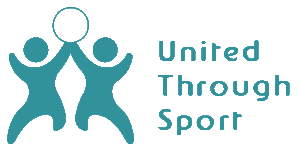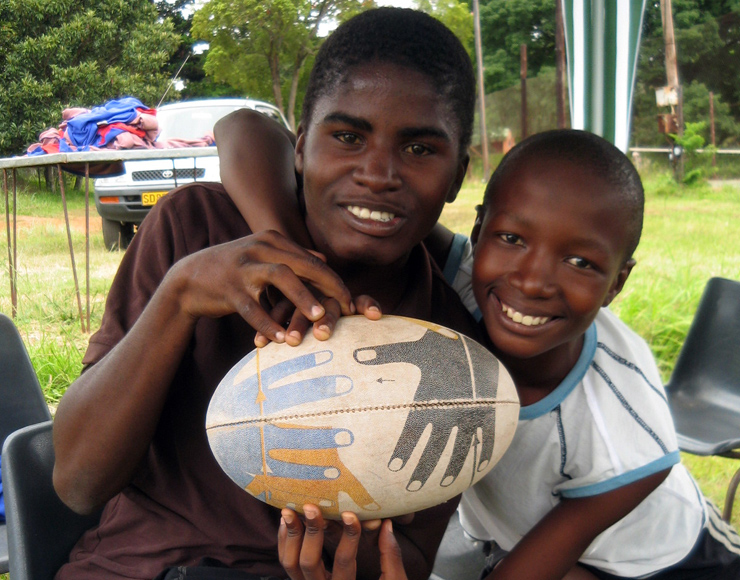HIV Counselling and Testing Tournament
‘Youth Day’ is a hugely celebrated day in South Africa and being an organisation that has it’s primary goal as ‘development of youth’, United Through Sport SA held a HIV Counselling and Testing 5-a-side Tournament at a small town just outside of Port Elizabeth. The point of this tournament was to raise awareness about HIV/AIDS and to encourage HIV counselling and testing.
The 95 children playing on the day comprised of 7 local soccer teams and one local netball team; which were all under the age of 16, with the senior teams being the South African Police Services (SAPS) playing against the local team, Addo Legends. Also taking part in the tournament were our School of Excellence soccer boys and netball girls. The local police and health department were very involved on the day, making it the success it was.
Opening the day before the games was a performance from local traditional dancers which had the crowd amazed as the little boys and girls showed off their talents to the beats of the drum. When that was done, the first round of soccer started.
The community was really giving their support, with the old and the young cheering on. Being spectators was not the only way they were getting involved though; the queues for the HIV testing were getting longer by the minute. The added benefit with the mobile clinic at the field was the nurses were also screening for TB, blood sugar, haemoglobin and blood pressure, as well as HIV testing. Some of the children were busy with our life skills team doing activities from our curriculum, which promotes abstinence and educates about this deadly disease. Condoms were also made available to everyone, encouraging safe sex to the youth.
Our School of Excellence netball team won the junior tournament beating their Addo opponents convincingly. The police team was starting to warm up now, knowing the masters game was coming up after the semi-finals of the junior team. With the HIV counselling and testing still carrying on in the mobile clinics, the day was getting even more exciting and the pressure on the local teams was building up. The SAPS team proved to everyone watching that, once you join the force, you go through a lot of fitness training and used this to press home their advantage and win the master’s game.
The United Through Sport SA boys faced the Buffalos in the final round but could just not play down their talent! They were the winners of the tournament, with a 2-1 victory.
The post-match presentation had prizes for the following individuals: top goal scorer, goal keeper of the tournament, player’s player, player of the tournament and coach of the tournament. The senior team got a floating trophy and bragging rights!
With a total of 74 youth between 13 and 18 years old testing on the day, and 45 between 19 and 35 years old, the day was a success for our first HCT Tournament in Addo. The community of Addo was a pleasure to work with. The event would not have been the success it was, if we did not have support from the Cacadu Health Department, Olive Leaf, the SAPS, the Sundays River Citrus Company (oranges were the order of the day!) and Zola, who co-ordinated all the Addo logistics for us. We look forward to doing some more work with this community, as their appreciation was very encouraging.
Of the 74 children, none were HIV positive and of the older youth, 24% tested HIV positive. This just proved how programmes such as ours are needed to keep the young generation in the HIV-free zone. The community of Addo pleaded us to come back and get their kids more involved in sport. “We are happy when our kids are having fun and learning at the same time, as AIDS is a big problem” commented one of the parents.


